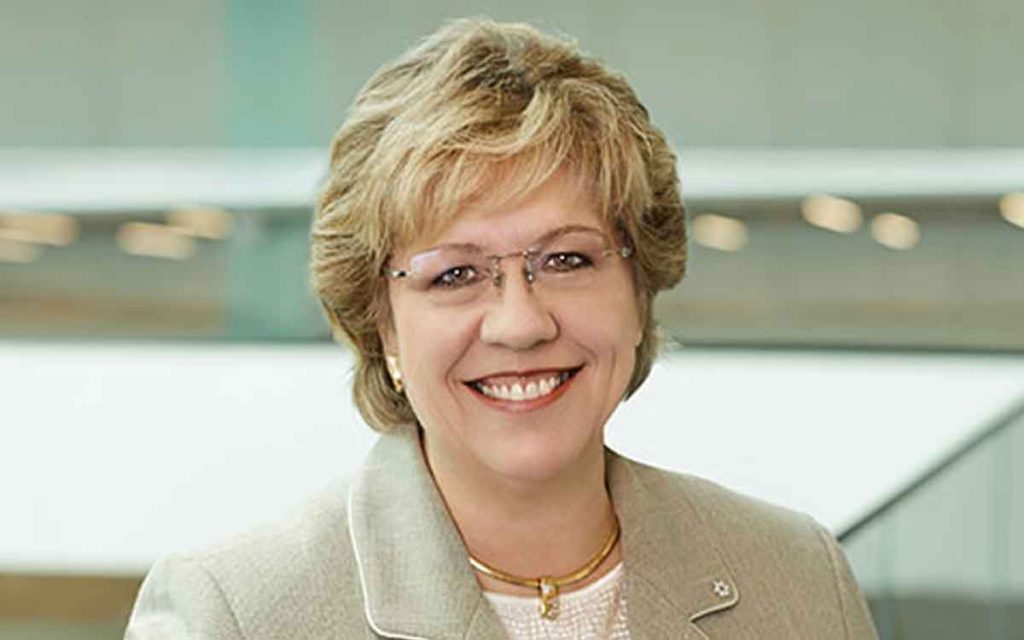
Former provincial Minister of Finance and The Niagara Independent contributor, Janet Ecker.
For those who thought Ontario Premier Doug Ford’s first budget would be a “blood-on-the-floor-slash-and-burn” exercise, there was disappointment.
For those who thought the still-new Ontario government would exercise strict fiscal discipline and eliminate the budgetary deficit in four years, they too were let down.
Thus, Finance Minister Vic Fedeli’s promise of a “Goldilocks” approach, balancing the budget not too quickly nor too slowly, was indeed kept. Either direction is a gamble for the government – too fast risks significant damage to services, but too slow means the budget might not be balanced before the next economic downturn occurs.
But so far, one week after the budget, the exercise can be deemed a success for the government.
There was indeed cost cutting and restraint. The budget is to be balanced in five years and news of reductions is trickling out as organizations receive official notice. Cue the critics – particularly the teacher unions to predict the end of civilization as we know it.
Of course, any budget reductions mean challenge and change, sometimes dramatic change for the organizations involved. But there has never been a government program or expenditure yet that couldn’t produce a long line of supporters to argue in its favour. But finding efficiencies is an everyday exercise for businesses and families.
Something has to go if fiscal sanity is to be regained while trying to protect health care and education. And it is worth reminding critics that Ford was duly elected with a large majority on a prominent pledge to eliminate what was then estimated to be a $15 billion deficit, courtesy of the previous Liberal administration.
But there were also very positive initiatives in the budget. A dental plan for low-income seniors is long overdue. It will benefit not only those seniors who will now receive care, but also relieve the strained health system from treating preventable problems brought on by poor dental health.
The Minister’s signature initiative is a significant boost for parents who require child care. The new Ontario Childcare Access and Relief from Expenses Tax Credit (CARE), which will exist on top of existing childcare tax deductions, creates a generous tax subsidization system for modest-income families.
Not only will this be a significant boost to get more parents into the workforce, its flexibility will also support an individual family’s circumstances.
To top it off, the government also pledged 30,000 more new licensed child care spaces in schools.
The other move attracting significant attention is loosening alcohol rules – allowing it to be sold earlier in the day, allowing “tail-gate” parties at sporting events and drinking in public parks as well as expanding access in grocery and variety stores. As an aside, it is interesting to note that the Premier is a non-drinker.
Finally, there is a long list of smaller but potentially significant initiatives to eliminate red tape, from auto insurance to the securities industry. All promise positive economic results and demonstrate the government is truly “open for business” as they often claim.
So neither slash and burn, nor turning on the fiscal taps. Goldilocks would be proud.

Janet Ecker is a former Ontario Finance Minister, Minister of Education, Minister of Community and Social Services and Government House Leader in the governments of Premier Mike Harris and Premier Ernie Eves. After her political career, she served as the founding CEO of the Toronto Financial Services Alliance, a public-private partnership dedicated to building Toronto region into an international financial centre. She currently sits on a number of corporate and non-profit boards, agencies and advisory committees.
Ms. Ecker received the Order of Canada for her public service contributions and was recognized as one of the “Most Influential People in the World’s Financial Centres” by Financial Centres International. She also received a “Canada’s Most Powerful Women: Top 100 Award” from the Women’s Executive Network and the Richard Ivey School of Business, among other awards. She is also one of the founders of Equal Voice, a national, multi-partisan organization working to elect more women.




















